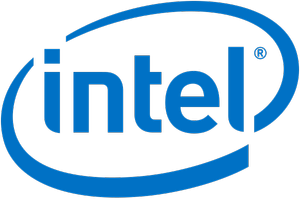How to stay connected, entertained, educated, and productive at home
All the best tips and apps for your computer

These days, computers are an integral part of life for most people, but we are willing to bet most people are not using them to their full potential. If you have always wondered how to get more from your trusty PC, you are in the right place.
In this article, we will take you through some of the key ways you can use your computer to enhance your life, from staying in touch with friends to working – and playing – more effectively. We have rounded up the best tips, websites, and apps that can help you achieve more, in many cases completely for free.
During these uncertain times, it's never been more important to keep connected to friends and family, while also unwinding with your laptop or computer.

Connect to loved ones
With a computer and an internet connection, you have the world at your fingertips. This makes it easier than ever to stay in touch with friends and loved ones, and there are plenty of ways to do so without having to pay a penny.
One of the best options is Skype. It is a video-calling app that comes bundled with Windows 10, so you do not even need to download it to get started. You can call anyone else who has a Skype account for free, either as a voice call or a video chat (providing you both have webcams with your PCs).
If you would prefer to talk to your friends over text, you can do that too. WhatsApp and Facebook Messenger may be better known for their mobile apps, but you can use both on a computer, too.
Just download the WhatsApp Desktop app or use the messenger on Facebook and you can message your friends and relatives for free.
Get daily insight, inspiration and deals in your inbox
Get the hottest deals available in your inbox plus news, reviews, opinion, analysis and more from the TechRadar team.
Elsewhere, Google has integrated a Hangouts chat box into its Gmail email service. If you have a Gmail account, you should see the option in the bottom-left corner of the screen. This lets you send a text message to any of your contacts, or to start a video call with them if you prefer.

Stay entertained at home
A lot of people primarily use their computers for work, but your PC can also function as an all-in-one entertainment centre, comprising music, TV, films, and games.
There are many popular music streaming services that let you play as much music as you like in return for a monthly fee. Services such as Spotify, Apple Music and Amazon Music are all options here. If you would rather pay for individual tracks or albums and keep them forever, Amazon’s Digital Music Store and Apple’s iTunes Store are both good choices.
As for TV shows and films, you do not need a television to enjoy the likes of Star Wars and Peaky Blinders at home. There is no shortage of streaming services available, from Netflix and Disney Plus to Now TV and Amazon Prime Video. Each one lets you watch as many shows and movies as you like for a monthly fee.
Finally, your computer can play host to a huge range of fantastic PC games. There are various online marketplaces from which to buy games, including the likes of Steam, Epic Games, Humble Bundle and more.
You can play with a controller (like you would on a games console), or with a mouse and keyboard – this flexibility is a real benefit of playing games on your computer. Just make sure you check your PC meets the game’s requirements before you purchase.

Learn something new
One of the great things about owning a computer is it means you can learn pretty much anything from anywhere. There is no need to be in a classroom or enrol on an expensive college course – just sit down with your laptop and learn at a time and place that suits you.
There are two main options if you want to learn something on your computer: downloadable apps and online resources. When it comes to apps, there are lots of choices. If you want to learn a language, for instance, apps like Duolingo and Rosetta Stone are some of the best. They break language learning down into manageable chunks, helping you get to grips with the new tongue without feeling out of your depth.
If you are interested in online courses, on the other hand, there is a wealth of websites offering helpful tuition. The Open University is one of the more well-known names, while websites such as FutureLearn and edX are well-stocked with courses from the likes of Harvard University the University of Oxford.
And that’s not forgetting the huge number of free educational resources, including websites like Wikipedia and BBC Bitesize. There are also loads of brilliant video tutorials for free on YouTube. Learning something new does not have to cost you a thing.

Ramp up your productivity
For many people, a computer is an invaluable tool that helps them be more productive than they have ever been. Whether you are working or getting creative, that can be the same for you, too.
When it comes to doing your work, getting a good office suite is often essential. These suites include word processors, spreadsheets, presentation apps, and more. One of the best-known is Microsoft Office, which you can either buy outright or pay for with a yearly subscription. There are free alternatives, too, including OpenOffice and LibreOffice.
Computers are also a great way to get creative. You can edit your photos with Adobe Photoshop Elements, create videos for free with Lightworks, or craft detailed illustrations in apps like Affinity Designer and Corel Painter. If you have got a creative spark, your computer is the perfect partner.
And if you are looking to go down the artistic route, you can even buy a drawing tablet and stylus to make digital painting even more natural – Wacom has a great range of products to choose from, all of which make creating art a breeze. Alternatively, you can buy a 2-in-1 laptop (like the Microsoft Surface Book 3) that doubles as a tablet, giving you plenty of flexibility to work how you want to.
- We’ve picked out all the best laptops of 2020

Alex Blake has been fooling around with computers since the early 1990s, and since that time he's learned a thing or two about tech. No more than two things, though. That's all his brain can hold. As well as TechRadar, Alex writes for iMore, Digital Trends and Creative Bloq, among others. He was previously commissioning editor at MacFormat magazine. That means he mostly covers the world of Apple and its latest products, but also Windows, computer peripherals, mobile apps, and much more beyond. When not writing, you can find him hiking the English countryside and gaming on his PC.

